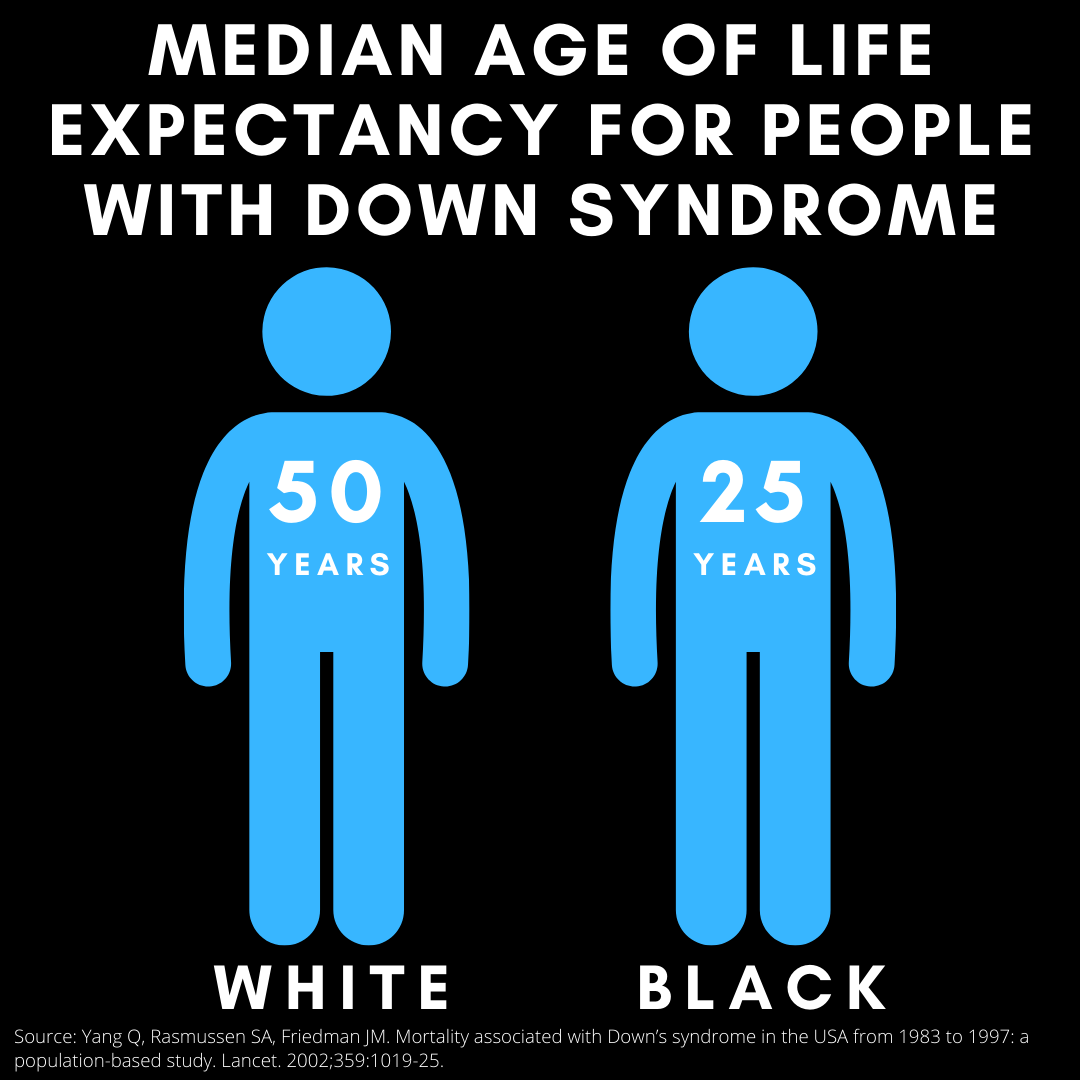This Number Shows the Stark Effects of Systemic Racism on People With Down Syndrome
A diagnosis of Down syndrome used to mean a death sentence. Medical advances, awareness, and education have made huge changes in the life expectancies of those with Down syndrome, but those changes have not been the same across all skin colors.
In 1968, the median life expectancy of a person with Down syndrome in the US was 1-2 years. Over the course of 30 years, it grew to 50 years for those who were White, but only 25 years for those who were Black.

The results were duplicated in numerous studies. Researchers have torn apart any data related to the subject they could find, but ultimately came up empty-handed.
All of the studies end on a similar note: “We did not demonstrate a medical basis for racial disparity in life expectancy.”
In case you missed it — I’ll say it again: there was no medical reason the researchers could find that justified the fact that white people with Down syndrome were living twice as long as black people with Down syndrome.
You know what they came up with?
If you’ve been listening lately, there’s a lot of overlap with the systemic racism that’s being discussed in the Black Lives Matter movement.
The odds of having an extra 21st chromosome are the same regardless of a person’s skin color.
How long a median life is for a person with Down syndrome is different based on a person’s skin color.
Ultimately what this boils down to is that although Down syndrome itself does not discriminate, there are policies, systems and people who do.
Getty image by Miss Hibiscus.

